December 11, 2023 - Ross Video Team, Ross News
Broadcasting a Greener Tomorrow: Our Sustainable Practices


Sustainability is no longer an afterthought in modern business. Consumer and legislative demand for eco-conscious services and products is ballooning, and meeting those is a particularly significant challenge for technology manufacturers. Not only are modern value chains long and complex, but a large proportion of the emissions created before and during a product’s life are largely outside of manufacturers’ direct control.
At Ross Video, we’ve always believed that innovation and environmental responsibility go hand in hand. Observing the effects of climate change, our CEO, David Ross, realized that we have a unique opportunity to make a difference. This realization led us to embark on a journey (14 years ago!) towards significantly reducing our environmental footprint, even though we understand that the return on this investment will take years to materialize.
Our dedication to environmental stewardship is shaping the future of Ross Video. “On one hand, being green may seem unrelated to our products and services’ functional superiority,” David Ross shared in a recent conversation with the Ottawa Business Journal. “However, our customers and employees are increasingly concerned about the planet’s future. Long term, we believe that being environmentally responsible is a strategic choice that will differentiate us in the market.”
Our facility in Iroquois, Ontario, is a testament to our commitment. Our facility is on track to achieve Net Zero Carbon before 2025 after several upgrades including:
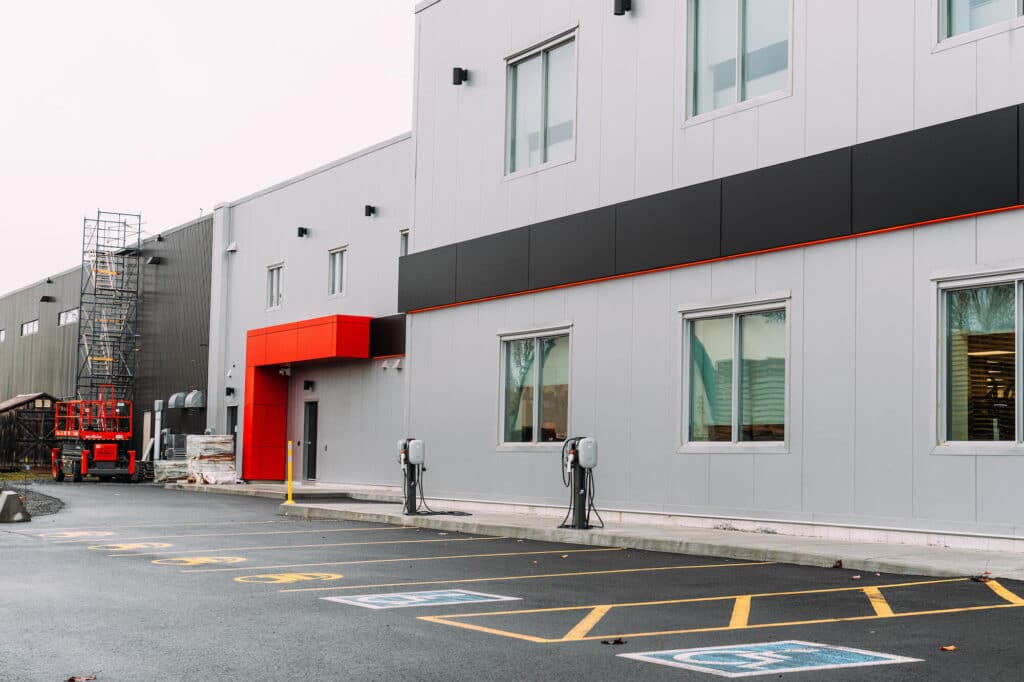
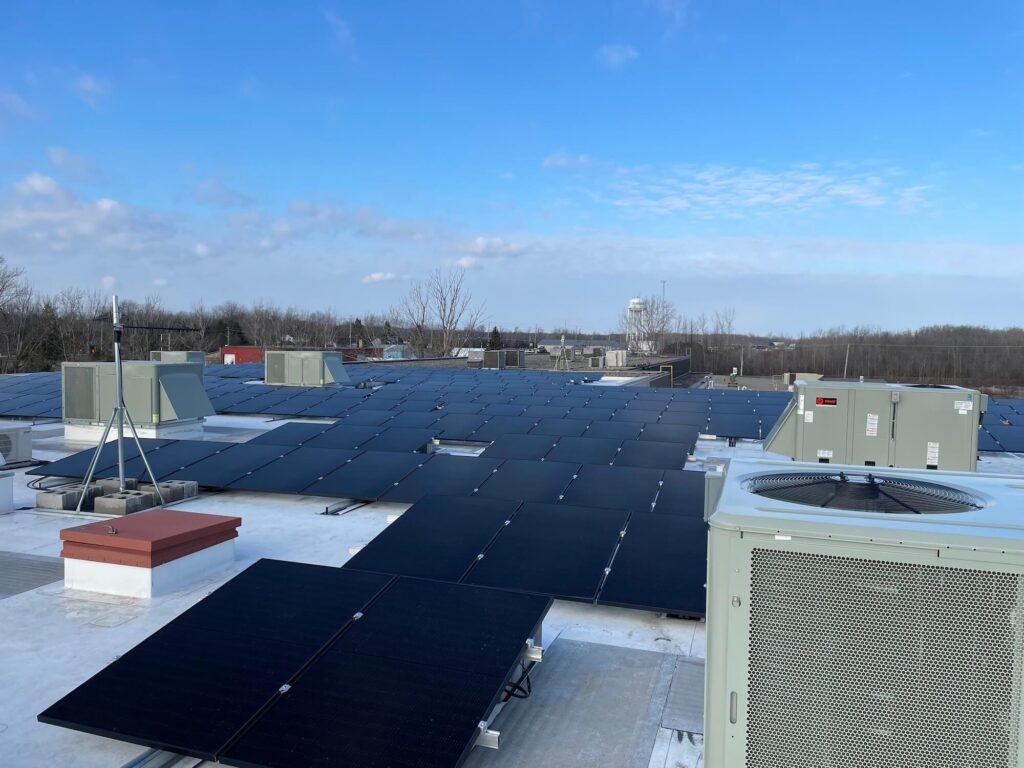
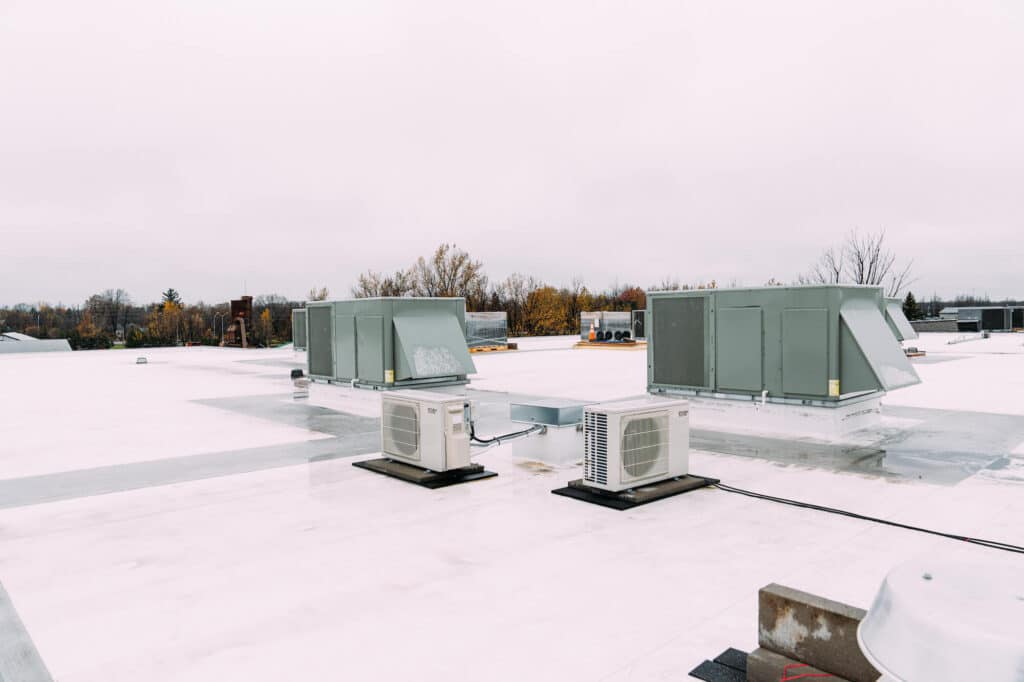
Jeff Poapst, our Chief Manufacturing Officer, highlighted these efforts, “We have a key role as a leader in our industry and the local community to demonstrate what can be done to help lessen our environmental impact, and protect future generations from the damaging effects of greenhouse gases.”
Emissions are only one element of our environmental impact. Reducing waste is also an important step towards sustainability. To limit the amount of non-renewable waste we produce, we use primarily recyclable packaging with all our products.
We’ve taken a practical approach to minimizing waste by looking for opportunities to integrate low-waste processes throughout our operations. This includes using no clean solder paste and flux, which eliminates the need for water in the soldering process, and we’ve adopted a closed-loop ultrasonic stencil cleaning process, ensuring that our water usage is restricted to essential services such as washrooms and lunchrooms. And we’ve limited single-use plastics in the plant with a view to eliminating them completely over the coming years.
On the product side, our hyperconverged solutions require fewer raw materials by design, meaning they generate less waste at the end of their life. The extended lifespan of our products through modularity and software upgradability also helps to reduce waste created from discontinuation, and our emphasis on design for disassembly maximizes the reclaimability of the materials at the end of their life.
At Ross Video, innovation is at the core of what we do. Our R&D team in Ottawa is committed to designing products that meet our customers’ needs and contribute to a sustainable future. Our Hyperconverged Platform, Ultrix, is the perfect example.
We considered sustainability from the very first stages of its design, considering the value chain from both ends: We wanted to create a product from materials we could source as sustainably as possible — and we wanted to design a product with a minimal environmental footprint over its lifetime.
The Ultrix does this by merging production components into a single, modular, software-enhanced platform, offering “big production capabilities in a compact package.” This “hyperconverged” approach means Ultrix can replace multiple large pieces of equipment, reducing the energy required to power and ship it initially and for the rest of the product’s life.
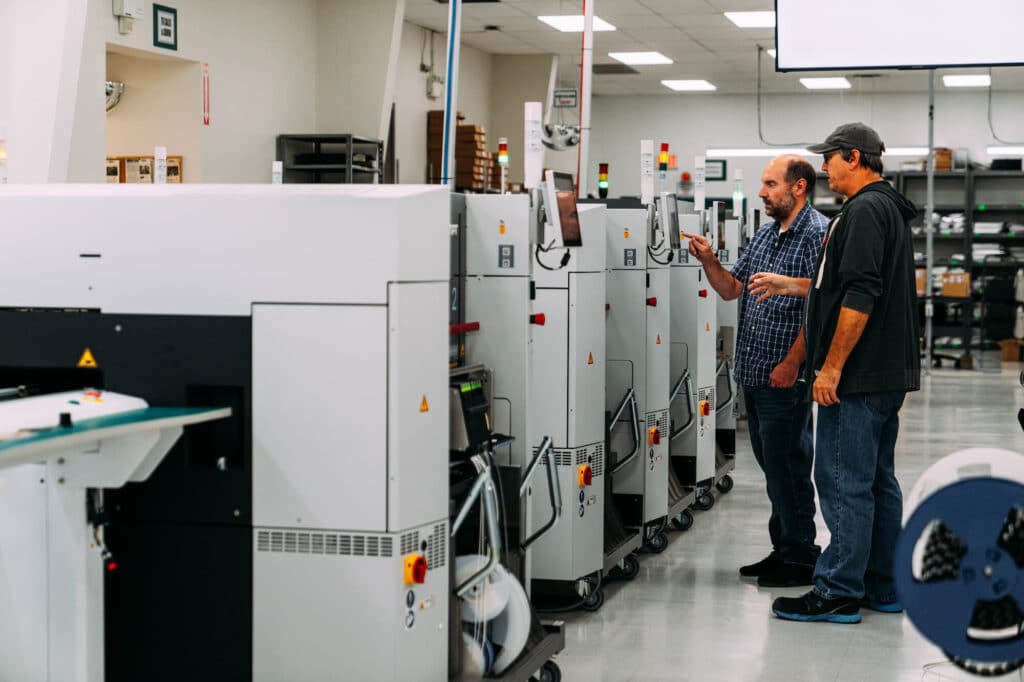
This hyperconverged approach is an entirely new approach to building video production infrastructure and is quickly seeing adoption across the industry.
Our journey towards sustainability is deeply embedded in our company culture.
It began over 15 years ago with the initiative of a former employee, Peter Breedyk, who pushed for sustainable practices like eliminating lead solder and finding greener packaging solutions.
“It was the beginning of the company’s current philosophy of diversity and sustainability,” Poapst noted. Our internal policies guide our daily operations, emphasizing reusable and recyclable goods and local sourcing and encouraging our staff to embody these principles.
As Ross Video nears its 50th year of operation, our commitment to sustainability has helped us reduce our carbon footprint and solidified our identity as a leader in the community and the broadcasting industry. “As a leading local employer and a member of the broader broadcast community, we have an outsized influence on society,” said Poapst, underscoring our role in driving industry-wide change.
Our journey towards a more sustainable future is ongoing, and we’re proud to be at the forefront of this critical movement in our industry. By combining capitalism with social responsibility, we’re setting a new standard for sustainability in the video technology sector.

Your essential guide to navigating live video production technology upgrades and replacement. Upgrading your production tech stack is crucial for improving workflows, enhancing content quality, and staying …
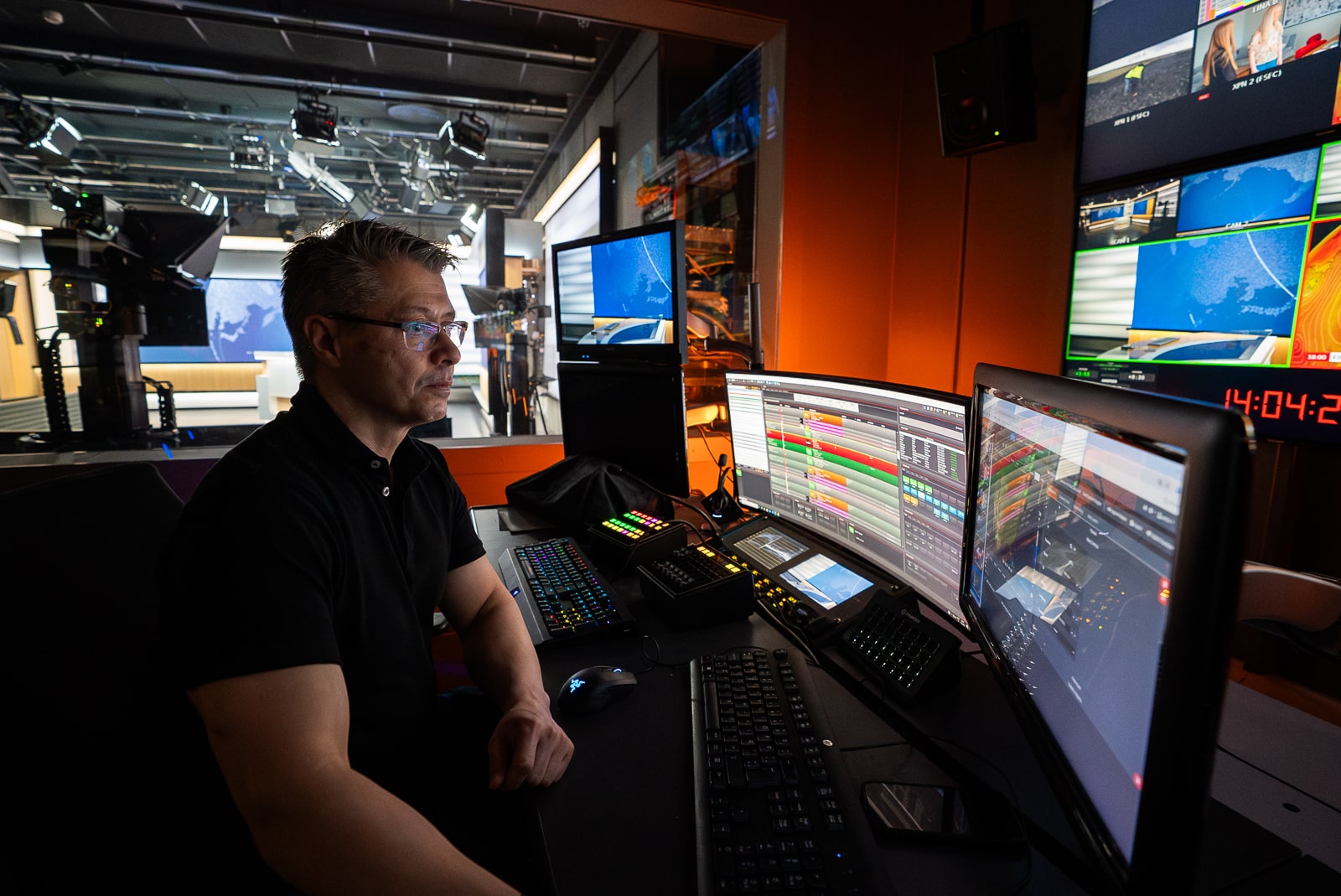
Live broadcast and media organizations operate in a high-stakes, high-competition environment where every second matters. At the heart of their success are the trusted partnerships they build …
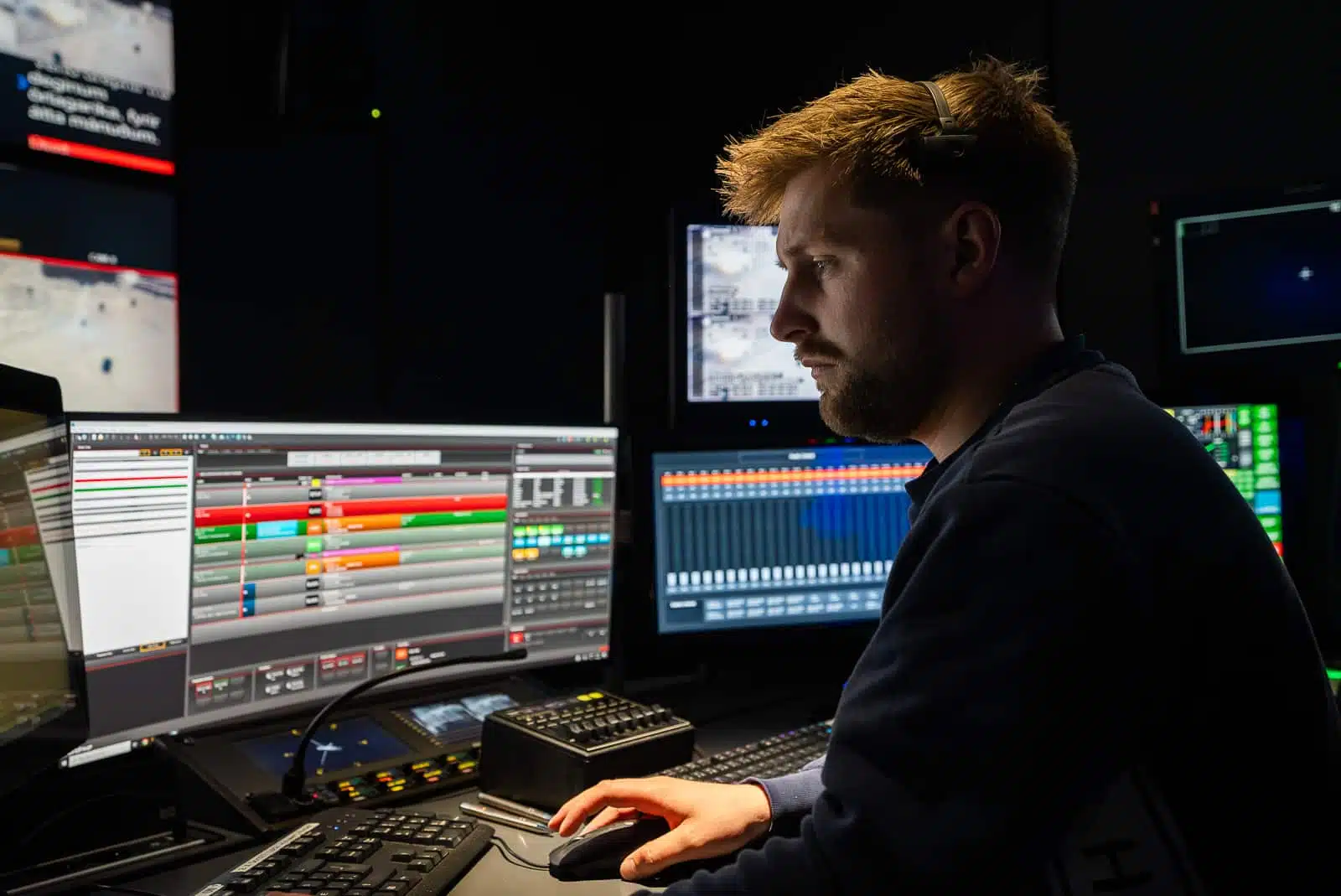
Consumers today expect broadcast content to be available whenever, and wherever they want. Broadcasters are under increasing pressure to create and disseminate content in real-time and on-demand …
We’ll put you in touch with a member of our team to discuss your specific needs.